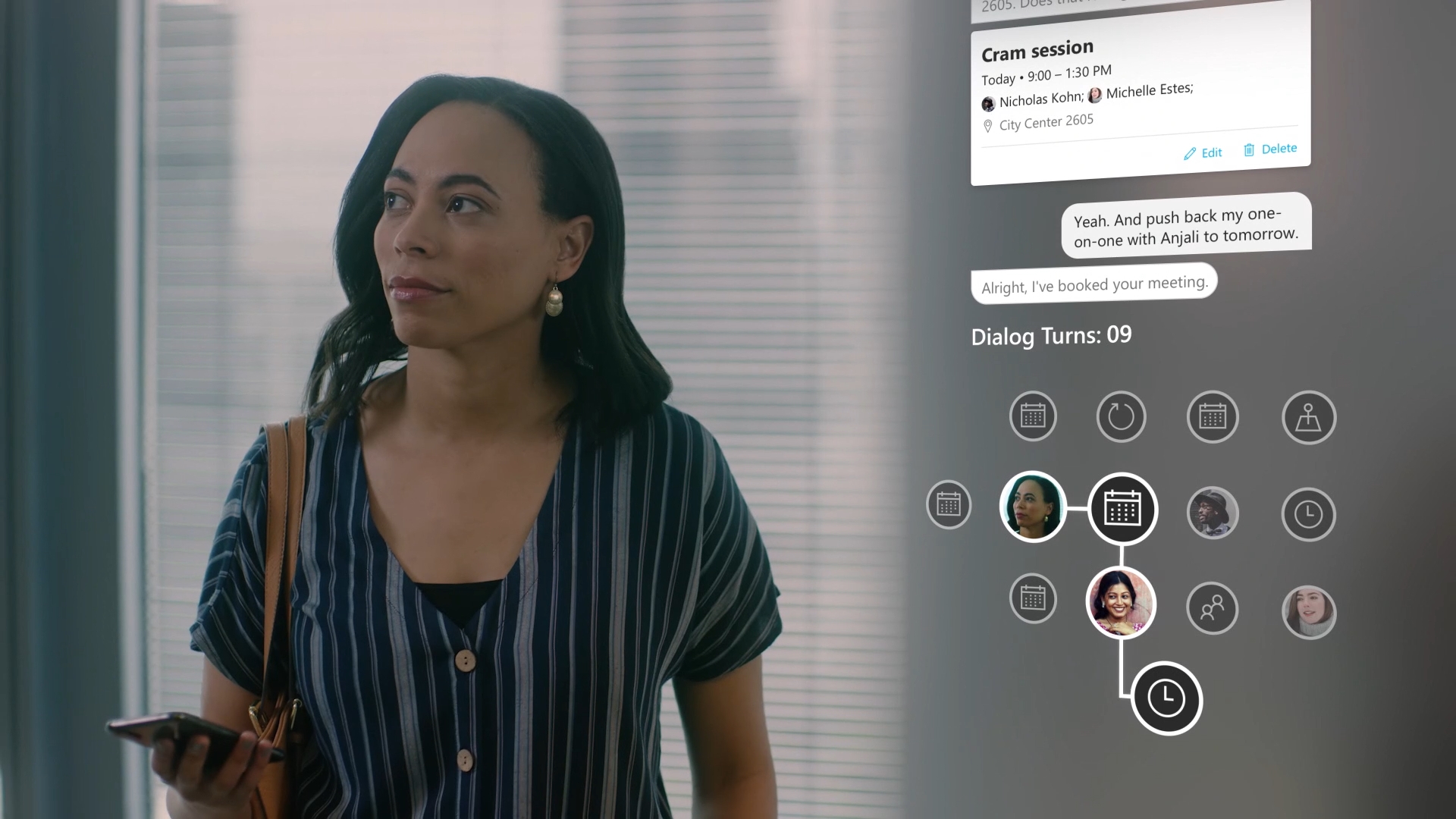Microsoft’s Cortana gains conversational AI, becoming an ‘intelligent agent’
Conversational interactions with a much better understanding of context

Over at Build 2019 in Seattle, Washington, Microsoft has revealed its plans to push forward with making Cortana a smarter digital assistant which offers more natural and conversational interactions.
This is something Microsoft has been banging the drum about for quite some time now. Indeed, the acquisition of Semantic Machines in May 2018, a company that focuses on conversational human-machine interactions, further signposted these intentions.
So, Microsoft’s researchers have been working with the top brains at Semantic Machines to build what is described as a “breakthrough new conversational AI technology.”
- Is Microsoft turning Cortana into Clippy 2.0?
- Windows 10 may let you swap Cortana for other digital assistants
- Clash of the assistants: Siri vs Google vs Alexa
And this new conversational engine will be built directly into Cortana, with the idea being to move beyond simple canned responses (which are sometimes entirely inappropriate when queries are misinterpreted) to a more sophisticated digital assistant – an ‘intelligent agent’ is the phrase Microsoft likes to use – capable of more fully understanding context and providing a more human-like and useful level of interaction.
Microsoft boasts that its new AI tech moves beyond simple rules and skills to provide ‘true language understanding’ and the ability to carry the context of previous interactions into future ones, not to mention the prospect of combining multiple skills across apps.
As we’ve heard before with Semantic Machines’ tech, these context-sensitive advancements will mean that when you are, say, booking a hotel, a digital assistant could benefit from the previous knowledge of what event you’re going to, and how you’re traveling, so it can make a more appropriate recommendation of where to stay.
Agents of change
Microsoft also envisions multiple intelligent agents all being hooked up together and able to seamlessly interoperate, with every organization having its own agents – just like companies these days build their own apps or websites.
Sign up for breaking news, reviews, opinion, top tech deals, and more.
Again, this makes sense given what we’ve heard in recent times about Cortana being built to integrate with other big-name digital assistants like Alexa or Google Assistant.
Furthermore, Microsoft also revealed its new Fluid Framework, a web-based platform designed to facilitate ‘shared interactive experiences’ which – among other things – provides seamless and super-speedy document co-authoring, combined with intelligent agents that can work alongside human co-authors to seamlessly carry out tasks like fetching relevant content, or providing suggestions for photos, for example. Fluid will be available to developers later in 2019 via a software development kit.
Naturally, Microsoft isn’t the only company looking to drive forward on the AI front with more sophisticated and conversational responses for its virtual assistant.
Google Assistant in particular is making great strides here already, with one of our highlights of last year being Google Duplex, AI tech integrated into Google’s virtual assistant which can make calls for you and deal with a real person on the other end of the phone – to reserve a table at a restaurant, for instance. That really is smart stuff, and an absolute AI game-changer.
Alexa, of course, has a vast library of skills, and Amazon is hard at work trying to refine its assistant’s contextual understanding chops, but it feels like the company may need to up its game on the latter front given Microsoft’s announcement today and Google’s progress with Duplex.
- Some of the best laptops of 2019 run Windows 10 and Cortana
Darren is a freelancer writing news and features for TechRadar (and occasionally T3) across a broad range of computing topics including CPUs, GPUs, various other hardware, VPNs, antivirus and more. He has written about tech for the best part of three decades, and writes books in his spare time (his debut novel - 'I Know What You Did Last Supper' - was published by Hachette UK in 2013).